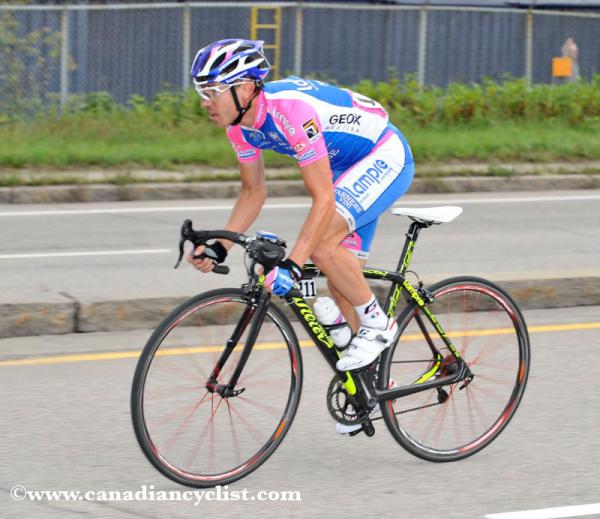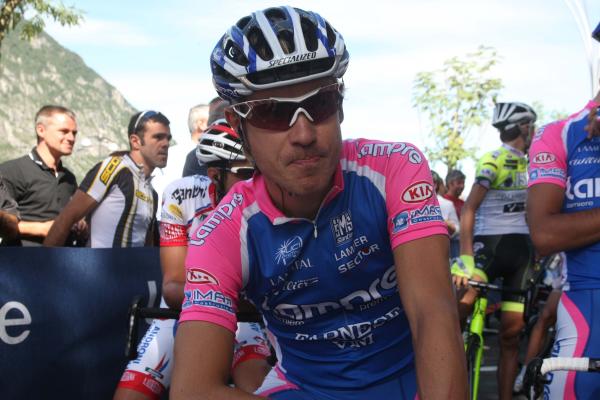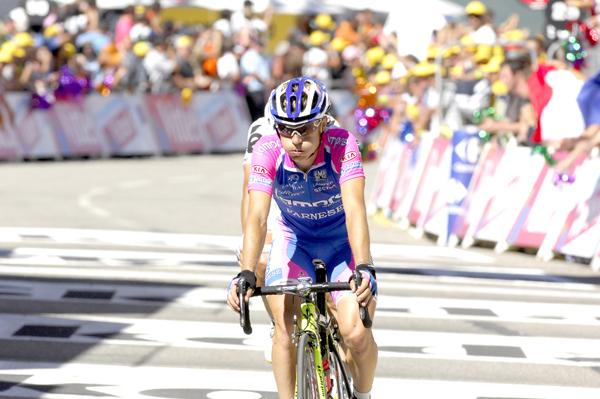Cunego admits Giro standard has risen since 2004
Italian to focus on Classics in 2011



Damiano Cunego (Lampre-ISD) has admitted that the overall standard of the Giro d’Italia has risen since he took victory in the event as a 22-year-old in 2004. The Italian rider has also reiterated that he will focus on the Classics next season.
High expectations have surrounded Cunego ever since his precocious Giro victory, but he refuted the idea that he has failed to develop as a Grand Tour contender. Instead, he confessed that the overall standard of the field at the Giro has risen considerably in the intervening period.
“I’ve done other good Giri after 2004,” Cunego told L’Arena. “I have developed: now I’m twice as strong as in 2004, but cycling has changed since then.
“I won a Giro in which there were, above all, Italian riders. Since then, there have always been a lot of foreigners, with strong and competitive teams, and the level has changed. However, I’m always there and it’s not easy always being there.”
Since his 2004 breakthrough, Cunego’s best Giro finish was fourth in 2006 and after finishing 18th and 11th in the past two seasons, he is ready to commit to focusing on the Ardennes Classics next year.
“With the classics coming so close to the Giro, you either train for one or the other,” Cunego explained. “Doing them both is difficult because the level is so high that it doesn’t allow you to be up there all the time. In 2011 I’ll focus on the classics. Although in any case, I will have to do a big tour. We’ll see after the classics.”
Winner of Amstel Gold Race in 2008, Cunego believes that racing in the Ardennes is perfectly suited to his style. “Amstel, Flèche and Liège are hard races with a lot of climbs. I’ve won one and in the others I’ve finished on the podium,” he said. “Winning one would be enough; it would save the entire season.”
Get The Leadout Newsletter
The latest race content, interviews, features, reviews and expert buying guides, direct to your inbox!
Cunego was more reticent about the possibility of participating in Milan-San Remo and said that he would only ride if he felt that he could make an impression on a race that is often shut down by the sprinters’ teams in the finale.
“I don’t know how suited it is to me,” he explained. “You can go and do it just to say: I’m here. It’s a nice race, but you risk riding it in an anonymous way if you don’t make a move on the Poggio. Do it by going on the attack? It’s hard if nobody budges. If Riccò were there, maybe…”
Cunego will prepare for the Classics by starting his season earlier than usual in February and by riding Tirreno-Adriatico for the first time, and he is hoping for a more fortunate build up than he had in 2010.
“It was an unlucky season right from the start,” he said. “I still have the marks on my arm from a fall that made me lose precious days at the start of the season. Few people know it, but then I was hit by a virus before the classics, so I arrived there with average form.”
Reducing the work load
While his 2010 spring campaign was blighted by misfortune, Cunego admitted that he compounded his problems by racing both the Giro d’Italia and the Tour de France.
“The only error was riding the Giro and the Tour,” he said. “In my opinion you can’t do both. The Tour was gruelling and by the end I was very tired, finished.”
After struggling through August, Cunego called time on his season at the Giro di Toscana and was not available for selection for the Worlds in Australia. During his break from racing, he has had time to reflect on a frustrating campaign, which ended without a single victory.
“One win of any kind would have been enough and my 2010 would have been different,” Cunego said. “It would have been a carbon copy of 2006 when, since I had won already, nobody said anything about me after the Tour. But an athlete must never look back, just give himself new objectives and do everything possible to improve.
“I’ve realised that if you don’t win, everybody is waiting for another false step. If you think about it, it becomes even harder and you become mad. Then you can have a year where things go well and opinions change.”

Barry Ryan was Head of Features at Cyclingnews. He has covered professional cycling since 2010, reporting from the Tour de France, Giro d’Italia and events from Argentina to Japan. His writing has appeared in The Independent, Procycling and Cycling Plus. He is the author of The Ascent: Sean Kelly, Stephen Roche and the Rise of Irish Cycling’s Golden Generation, published by Gill Books.